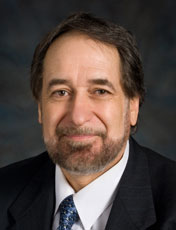News Archives
HHP Alumnus Wins NCI Mentored Career Development Award.
HHP alumnus Dr. Daniel C. Hughes recently won a prestigious Mentored Career Development Award from theNational Cancer Institute (NCI). The awards includes 3 years salary and $30,000 research costs per year. The specific aims of Dr. Hughes proposal were
-
To determine if predictors of exercise adherence, as defined by a Social Cognitive Theory-based model, differ between Hispanic and non-Hispanic endometrial cancer survivors.
-
To develop an R01 funding proposal for a randomized trial of a culturally tailored social cognitive theory-based exercise intervention on female Hispanic cancer survivors.
|
Dr. Daniel C. Hughes |
Dr. Hughes is currently a faculty in the Department of Behavioral Science at The University of Texas M. D. Anderson Cancer Center.
Below is a brief summary of the grant
|
Today, more then ever, there is a critical need to get more people, to be more active, for more of the time to help address the current and future public health burden of unnecessary illness and premature death caused by a sedentary lifestyle. Regular exercise promotes health by reducing the risk for heart disease, developing diabetes, high blood pressure, obesity, and reducing the risk for primary and secondary cancers. One cancer associated with an increased risk of obesity and a sedentary lifestyle is endometrial cancer. Physical activity for endometrial cancer patients remains largely understudied despite the fact that endometrial cancer is the most common gynecological malignancy, affecting an estimated 39,080 women in the United States this year alone. There are now an estimated 10.5 million cancer survivors in the United States, approximately 1.8 million of which are Hispanic. Hispanics make up the fastest growing ethnic minority group in the United States, and are forecasted to increase from an estimated 11.8% in the 2000 census to 18.2 % of the population by the year 2015. Despite the progress made in the detection and treatment of cancer, morbidity and mortality continue to be higher for Hispanics compared to non-Hispanics. Published literature regarding strategies and variables for successful recruitment and initiation of physical activity among Hispanics is limited. Concepts of free time, adherence to schedules, social support, modelingand cultural dimensions differ between ethnic groups, including Hispanics. Similar programs used in divergent populations can result in lowered levels of engagement in populations that may need it most. Thus, using culturally competent intervention strategies are needed to maximize effectiveness for increasing exercise in minority populations. |
About The National Cancer Institute (NCI):
NCI, part of National Institutes of Health (NIH), is the world's pre-eminent cancer research organization with a mandate to engage in certain fundamental activities: conducting and fostering cancer research; reviewing and approving grant-in-aid applications to support promising research projects on the causes, prevention, diagnosis, and treatment of cancer; collecting, analyzing, and disseminating the results of cancer research conducted in the United States and in other countries; and providing training and instruction in the diagnosis and treatment of cancer.
